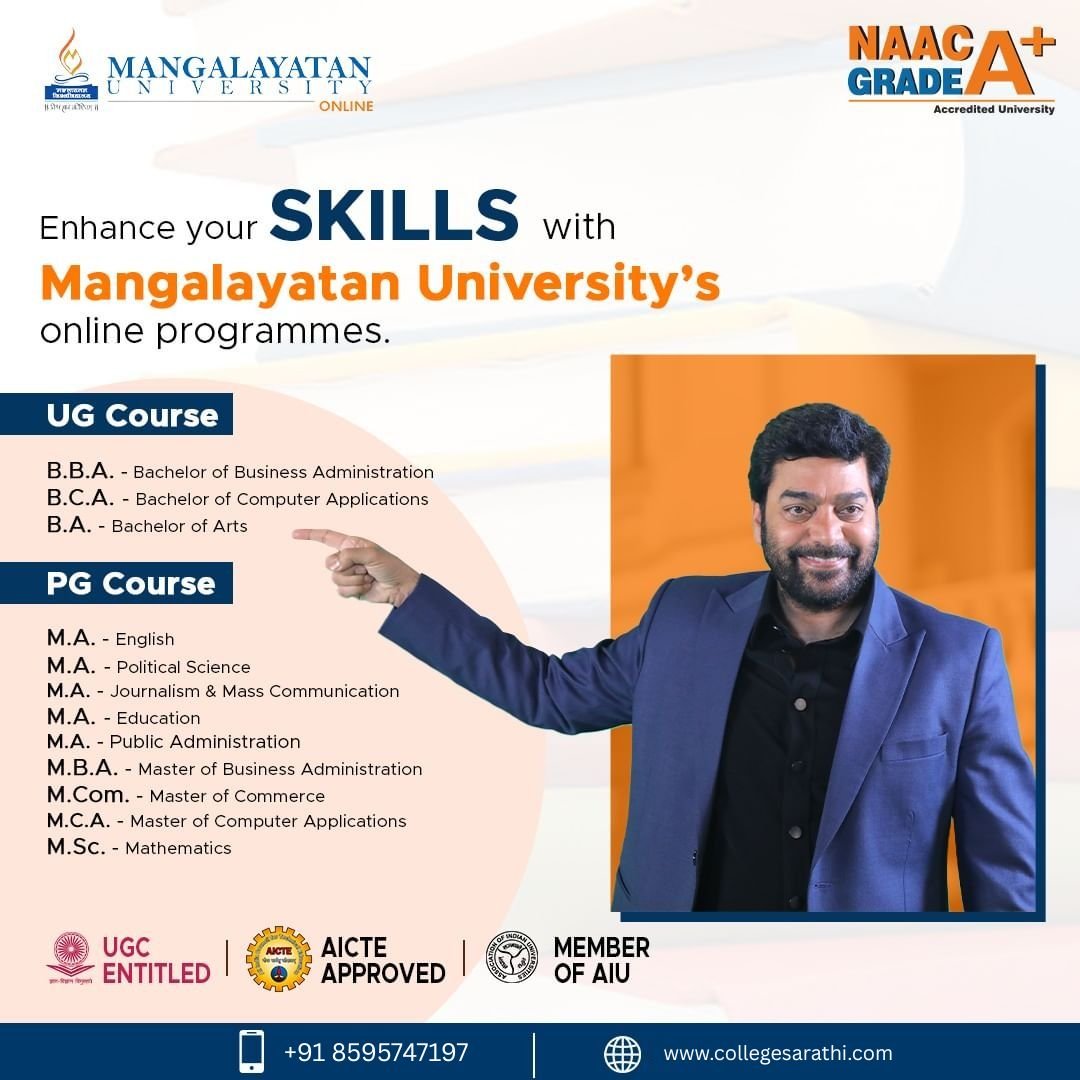Online Admission Scams Warning – 7 Red Flags to Avoid Fake Colleges
Introduction
In today’s digital world, online education has opened up endless possibilities for students and working professionals. However, this rapid growth has also led to a dark side—online admission scams. Fake colleges, unrecognized universities, and fraudulent agents are taking advantage of students by promising quick degrees, guaranteed jobs, and cheap fees.
The problem is more widespread than most people realize, and the consequences can be devastating—wasted money, invalid degrees, and lost years. This blog will help you spot 7 red flags to avoid falling into the trap of online admission frauds and fake educational institutions. Whether you’re planning to enroll in an online degree course, diploma, or certification program, this guide is a must-read.
1. No UGC or Government Recognition
🚩 Red Flag: The college is not listed on the UGC (University Grants Commission) or any government-approved list.
One of the biggest giveaways of a fake online university is the absence of proper recognition. Every genuine higher education institution in India must be approved by UGC, AICTE, DEB (Distance Education Bureau), or relevant state regulatory authorities. If a college or university claims to offer online or distance learning programs but is not listed on UGC’s official website, it’s a serious red flag.
How to check:
Visit www.ugc.ac.in and go to the “Recognized Universities” section. Cross-check the name and approval status.
2. Unrealistic Promises of Fast-Track Degrees
🚩 Red Flag: The college promises a 3-year degree in 6 months or similar shortcuts.
No genuine academic program can legally shorten a recognized 3-year or 4-year degree course to a few months. This is a common trick used by diploma mills or fake universities. These institutes often use words like “life experience degree”, “fast-track”, or “degree in few days” to attract students who are desperate for quick success.
Reality Check:
All legitimate degrees have a minimum academic duration regulated by UGC and other bodies. There are no legal shortcuts.
3. No Proper Website or Contact Details
🚩 Red Flag: The college has a poorly built website with no physical address, email ID, or phone number.
Fake colleges usually operate through shady websites that look unprofessional or are filled with broken links, typos, and misleading information. They avoid showing their actual campus address or provide fake ones. The contact section may just have a mobile number or a generic Gmail ID.
What to do:
- Use Google Maps to verify the address.
- Call the number to check for response.
- Search for reviews on JustDial, Google Reviews, Quora, or LinkedIn.
4. No Official Admission Process
🚩 Red Flag: You get admission without submitting documents or appearing for any eligibility check.
Real universities have a proper admission process that involves:
- Eligibility check
- Document verification
- Entrance exams or merit-based shortlisting
- Fee structure disclosures
- Student login and LMS (Learning Management System)
If someone tells you that you can pay the fee today and get the admission letter tomorrow without any formality, run away! It’s likely a fraud.
Safe Tip: Always ask for official admission brochures, academic calendars, and policies. Legitimate colleges will provide them.
5. Over-Promising Agents or Counselors
🚩 Red Flag: Agents guarantee job placements, government recognition, and visa approval if you take admission.
Many scamsters pretend to be admission consultants or education counselors and target students via WhatsApp, Telegram, Facebook, or Instagram. They say things like:
- “Govt job milega is course se.”
- “Direct admission, no exams.”
- “International degree valid in India.”
They’ll offer huge discounts or claim they’re the “official partner” of a university—but never show proof.
Remember:
No genuine agent will guarantee government jobs or foreign visas based on an online degree. Be cautious.
6. Fake Certificates and Logos
🚩 Red Flag: The degree/diploma/certificate carries logos of top universities like Harvard, Oxford, IIT, or IGNOU, but no affiliation is mentioned.
Another tactic used by fraudsters is showcasing fake certificates with the logos of reputed institutions. Some even forge signatures of university registrars or include fake accreditation bodies.
Check for these clues:
- Is the university name even spelled correctly?
- Is the logo poorly printed or pixelated?
- Is there a QR code or registration number to verify it?
Pro Tip: Cross-check university logos, affiliations, and certificate formats from official university portals before trusting any document.
7. Pushy Tactics & No Refund Policy
Scammers create urgency to trap students. They often offer limited-time discounts, say the “batch is closing soon,” or claim there are only “2 seats left.” Once you pay, they either disappear or refuse a refund, giving excuses like “non-refundable registration charges.”
What you should expect from a genuine university:
- Transparent fee structure with refund policy
- Proper receipts and acknowledgment
- Student grievance cell
Never make instant payments on someone’s request unless you’re 100% sure of the source.
Why Students Fall for These Scams
Many students fall victim to these scams because of:
- Lack of awareness about UGC norms
- Desperation to get a job-ready degree quickly
- Peer pressure or fear of losing a year
- Misinformation spread through social media
This is why platforms like College Sarathi are committed to spreading awareness and guiding students toward UGC-approved, government-recognized online universities only.
How to Stay Safe – Practical Tips
- Verify Everything
Always check the college/university name on UGC DEB Portal, AICTE, or state boards. - Check Reviews and Testimonials
Google Reviews, Quora, and YouTube videos often expose scam colleges. - Don’t Pay Before Verification
Never make any payment until the course, recognition, and documents are verified. - Prefer Official Counselling Channels
Use official websites or trusted education platforms like College Sarathi for guidance. - Beware of Unofficial Telegram/WhatsApp Links
Many fraudsters post fake admission links on social media—never trust unknown links.
What to Do If You’re a Victim?
If you’ve already been scammed by a fake college or agent:
- File a complaint on Cyber Crime Portal
- Report to UGC or state education departments
- Share your story on online platforms to warn others
- Consult platforms like College Sarathi to check if recovery or re-admission options exist
Final Thoughts: Stay Informed, Stay Safe
Online education is a powerful tool when used wisely. It helps millions of students and working professionals access quality education from anywhere. But with this rise, admission scams and fake colleges have also grown. Being informed and alert is the best protection.
Don’t be tempted by shortcuts or flashy promises. Focus on authentic, UGC-approved programs that offer real academic value and career opportunities.
FAQs – Online Admission Scams
Q1. How can I check if an online university is UGC-approved?
Visit the official UGC website (www.ugc.ac.in) and check under “Recognized Universities.” You can also verify on the DEB portal.
Q2. Can I get a refund if I enrolled in a fake course?
In most cases, scam colleges do not offer refunds. If scammed, you should file a complaint with cyber crime authorities immediately.
Q3. Are online degrees valid for government jobs?
Yes, UGC-recognized online degrees are valid for government and private jobs. But the degree must be from a recognized university.
Q4. What should I do if an agent promises a fast-track degree?
Avoid such offers. No real degree can be completed in a few months. It’s likely a scam.
Q5. Which platform is safe for online admission guidance?
Platforms like College Sarathi provide verified counseling and only list UGC-approved courses.

















